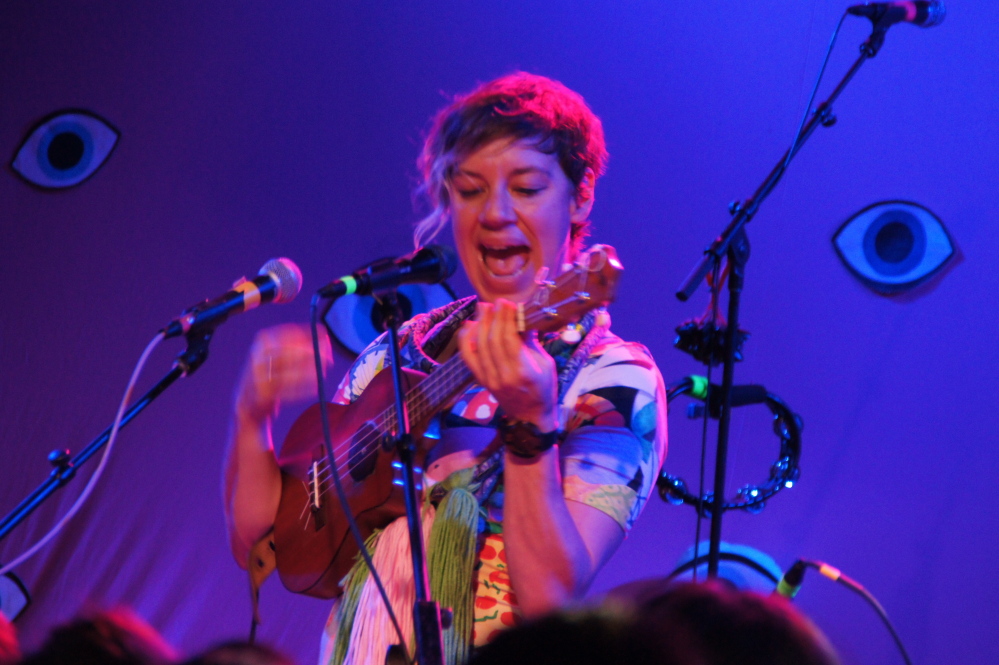Double bills don’t get much better than the lineup of White Hinterland and tUnE-yArDs. Those are the musical projects of Casey Dienel and Merrill Garbus, respectively, two women who could draw a crowd with little more than a drum machine, a sampler and a microphone. At times, that’s all they needed to make the floor of Port City Music Hall rattle with the vibration of people hopping and dancing.
White Hinterland, which has performed several shows at SPACE Gallery, is more or less a vehicle for songwriter Casey Dienel. She’s an arresting songwriter, performer and singer, whose prowess seems to grow with each record. Her opening set was on the short side but had a clear upward trajectory, culminating in a glorious squall of rhythm and vocals.
tUnE-yArDs opened with “Wait for a Minute,” the strongest single from their last album, “Nikki Nack.” Garbus delicately sang over chirping backing vocals and a rich bassline by Nate Brenner (the only other full-time member of the band). The melodies, which bopped and buzzed around each other like hummingbirds, proved that Garbus is one of few contemporary musicians who can incorporate African influences without making it sound like cultural appropriation — not for the last time that night.
She also added muscle to the set as it went on, particularly in the form of hard, heavy percussion. It’s very possible that she’s the only artist to ever turn the ukulele into a heavy instrument, and she did it by treating it like a drum rather than something to pluck. “Gangsta” and “Powa,” two songs from her 2011 album “w h o k i l l,” proved this point admirably, as she strummed with aggression and sang with inflections that ranged from a dove’s coo to an ambulance siren.
That 2011 album was named best album of the year in the Village Voice’s annual Pazz & Jop critics poll, an honor typically reserved for the likes of globally known artists such as Bob Dylan and Kanye West. Garbus probably won’t be filling auditoriums anytime soon, but she has a way of expanding every room she’s in to auditorium sizes. Before she became a professional musician, she was a puppeteer in Vermont’s Sandglass Theater. That experience permeates her live performance, as she uses relatively meager tools to summon an outsized, dramatic sound, and an eclectic arrangement of instruments and stage decoration to convey that everything serves purpose.
What I love about Garbus is how she strings together influences from 1990s political-oriented music, from Public Enemy to Ani DiFranco, back when it was more in fashion for musicians to be so engaged. She has an uncanny way of singing about the problems of the world and making it personal without making it about herself. This kind of empathy is a powerful drug, and the ability to pass it on is a gift. Garbus radiated joy as she performed, and it was infectious.
Robert Ker is a freelance music writer in Portland, where he and his wife own the vintage store Find. Contact him at:
bobzker@gmail.com
Twitter: @bobbker
Send questions/comments to the editors.


